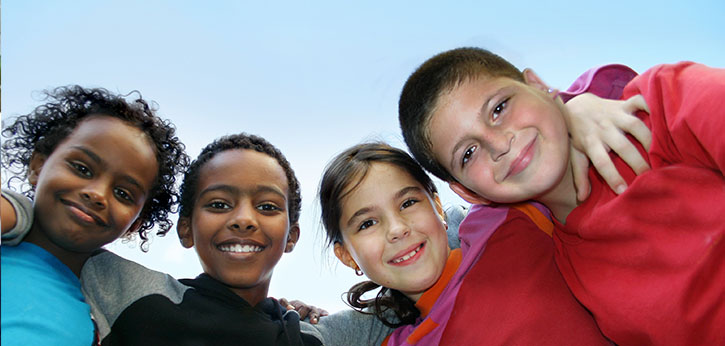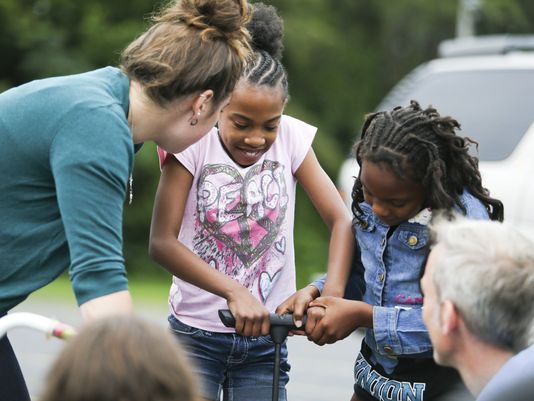In 2018, we live in a country where across 32 states, our African-American and Hispanic children are living in poverty at a rate at least twice as high as their white peers.
by Mary Kingston Roche, Director of Public Policy for IEL’s Coalition for Community
In 2018, we live in a country where across 32 states, our African-American and Hispanic children are living in poverty at a rate at least twice as high as their white peers. In some states, this rate increases to four or five times as high. This kind of inequality is so hard to process that we can only ask, how did this happen?
Today, we as a nation leave this question unchallenged and fail our children every day by being unwilling to undertake any serious conversation about this.
Where is our moral outrage, our collective commitment to do something to address this?
If any set of data showed just how broken our country’s promise of opportunity for all is, this is it.
So the question becomes, what do we do? To start, we know that the status quo isn’t working-we must do things differently, radically differently.
First, we must start by asking a simple question-why.
Why are African-American and Hispanic children living in poverty two, three, four, or even five times the rate of their white peers?
Then, we must listen. Listen to communities who will tell us exactly why. Who, through their stories and experiences will paint for us a picture so clear that we can no longer pretend that these inequalities were by accident.
Then, we must act. It takes courage to confront staggering issues of institutional and structural racism and classism, but we have to start somewhere-or else this data will only get worse.
IEL is committed to preparing leaders of all kinds to eliminate systemic barriers to equity in their communities so that everyone has the opportunity to succeed. To this end, we advocate for policies that address the development and well-being of the whole child, and enlist the support of entire communities to give them the supports and opportunities to succeed. The community schools strategy, a deep investment in family and community engagement, and programs like RAMP and Right Turn are positively changing the odds for young people every day. We call on leaders at all levels to immediately address our national crisis of child poverty-and particular the poverty rates of African-American and Hispanic children-and to match the size of this issue with the level of funding and boldness of policy changes needed to conquer it.
To every person reading this: You have the capacity to change the odds for children living in poverty today. Arm yourself with the courage to call out these inequities in your community and elsewhere when you see them, ask your community why, listen to their ideas and solutions, and then take that bold step to radically change this data. What that step is, depends on what you will learn from the lived experiences and wisdom of those who are living this data. But it is certain that whatever the action, it will be challenged by those who have grown too comfortable with the status quo. So lead with your heart, and the knowledge that this is the right and moral thing to do. Millions of children in our country who are living in poverty and who possess unlimited talent and dreams are waiting for you.

